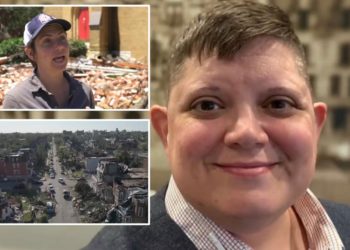Judge Extends Order Blocking Trump’s Planned Mass Layoffs
A judge handed workers across a broad swath of the federal government a reprieve on Thursday night, extending her pause...
A Paris court will deliver the verdict in Kim Kardashian jewelry heist trial
PARIS (AP) — A decade after robbers stormed Kim Kardashian’s luxury residence and tied her up at gunpoint, a Paris...
Lauren Sánchez sparkles in sequined corset gown on amfAR Gala Cannes 2025 red carpet
Lauren Sánchez attended the amfAR Gala in Cannes on Thursday in a sparkling strapless gown. Dave Benett/amfAR/Getty Images for amfAR...
Pistons May Want Cade Cunningham to Avoid Making 2025 All-NBA Team
If you gave Detroit Pistons general manager Trajan Langdon some truth serum, the second-year executive might concede that he wouldn’t...
Biden judge blocks Trump’s order to dismantle the Department of Education
Another federal judge ruled against President Donald Trump on Thursday, this time to block his order to close down the...
Jimmy Kimmel Mocks Diddy’s Shockingly ‘Crazy’ Courtroom Sketches
Jimmy Kimmel is still fascinated by the ongoing trial of Sean “Diddy” Combs, but he’s even more interested in Diddy’s...
‘Progress Belongs to Those Who Dare’: Highlights From TIME’s Inaugural Philanthropy Impact Dinner
Playwrights, poets, and athletes gathered at One World Trade Center—a site commemorating the power of hope, restoration, and coming together—as...
Republicans Secretly Freaking Out Over Elon Musk’s Latest Announcement
Republicans may be glad that Elon Musk is gone from the White House, but they’re not happy he’s taking his...
City of Huntsville considers sewer rate increase
HUNTSVILLE, Ala. (WHNT) — Huntsville residents could see their sewer charge on their utility bill increase for the rest of...
You can dance, you can jive, having the elections of your life
Welcome to Declassified, a weekly humor column. What an exciting weekend it’s been for Europe. Not only did the continent...

















